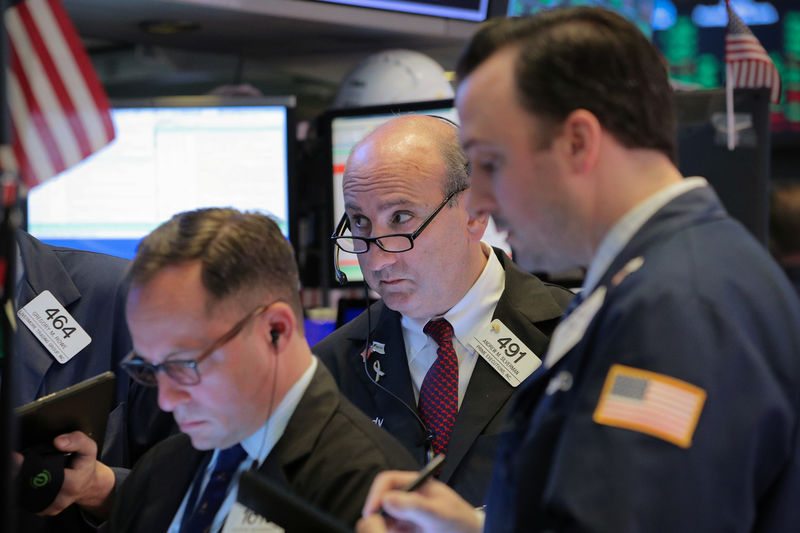By Sinéad Carew
NEW YORK (Reuters) - Shares of smaller publicly listed U.S. companies have fallen more on recent U.S.-China trade tensions than larger corporations and could face an even rougher road as the year wears on unless the prospects for economic growth improve.
Wall Street has been forecasting a return to growth for the S&P 600 index of small cap stocks in the second half of 2019, but an intensifying trade battle between the world's two biggest economies puts these hopes into doubt.
Because they depend less on overseas sales than bigger companies, some investors say small caps may be less vulnerable in a trade war situation.
But if rising tariffs boost import prices to the extent that it slows U.S. economic growth, then smaller companies, which often have less financial cushion than big multinationals, could be badly hurt. And since many U.S. companies use overseas suppliers, tariff hikes could make imported goods too pricey.
"Because they have more domestic sales it doesn't mean they're totally insulated," said Jill Carey Hall, U.S. strategist at Bank of America Merrill Lynch (NYSE:BAC). "If we don't get a resolution on trade, you don't necessarily want to own small caps. They tend to fare more poorly in risk-off environments."
Since U.S. President Donald Trump's May 5 tweets about raising tariffs on $200 billion of Chinese goods to 25% from 10% the S&P 600 has fallen 5.4% and the Russell 2000 small cap index has declined 4.9% compared with the benchmark S&P 500's 2.9% drop.
(GRAPHIC: Small caps vs S&P 500 - https://tmsnrt.rs/2LOW5Y3)
One problem is that companies depending on imports for inventory had no time to stock up in the days between Trump's tweet and the actual tariff hike, started May 10.
And if the United States fulfills its threat to slap 25% tariffs on another $300 billion of goods that China sells here, that would add to the pressure.
Wall Street is already expecting a first-half earnings recession for the S&P 600 index of small cap stocks.
The average expectation is for a first-quarter earnings per share decline of 18% followed by a 9% second-quarter decline, according to I/B/E/S data collected by Refinitiv analyst David Aurelio.
"This will be the worst reporting season for small caps since 2009," said Jefferies equity strategist Steven DeSanctis, referring to first-quarter results.
Looking forward, analysts expect third-quarter EPS growth of 6.9% for the S&P 600 and 23.3% growth for the fourth quarter, according to Refinitiv's Aurelio.
But Wall Street may be too optimistic about the second half of the year, especially if the U.S.-China trade dispute is not resolved, according to DeSanctis, whose firm is predicting a prolonged trade battle.
"For small caps to pick up and resume their outperformance we need to see better trends in the economic data in the second half, which would lead to better earnings growth in the third and fourth quarter, which the Street is expecting," he said.
In fact, traders in the bond market and fed funds futures are making bets that imply the exact opposite - that U.S. economic growth will weaken.
"There's definitely a higher probability today that things aren't going to get better in the second half," said DeSanctis.
For growth to improve, U.S. consumer spending needs to stay strong, according to DeSanctis, who says the consumer would need to offset weakness in capital spending arising from corporate uncertainty over international trade.
To be sure, the labor market is still strong and wages are still growing. But that may not be enough.
"That's important people do have money in their pocket to spend," said DeSanctis, but he said small caps would struggle if tariffs inflate the price of consumer goods.

"If costs are really going to start to escalate, people are going to be far more concerned about their spending patterns," he said.